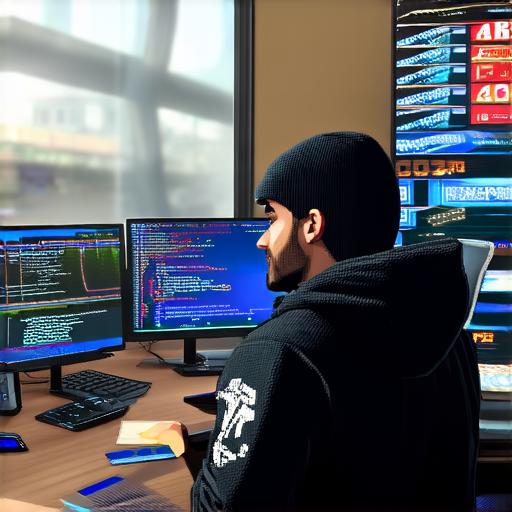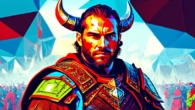
Top tips for crypto game developers
1. Understand Your Target Audience
Before you start building your game, it’s crucial to understand who your target audience is. Are they experienced gamers or just starting out? Do they have a specific interest in blockchain technology or just games that are fun and engaging? By knowing your target audience, you can create a game that speaks to their interests and provides them with an experience that keeps them coming back for more.

2. Create a Unique Game Mechanic
One of the most important things about building a successful crypto game is creating a unique game mechanic that sets it apart from other games in the market. This could be anything from a new way of using cryptocurrency within the game to a unique gameplay mechanic that keeps players engaged for hours on end. Whatever you decide, make sure it’s something that your target audience will love and find exciting.
3. Stay Up-to-Date with Crypto Trends
The world of crypto is constantly evolving, and it’s essential to stay up-to-date with the latest trends and developments in the industry. This includes keeping an eye on new technologies and innovations that could be incorporated into your game as well as staying informed about changes in regulations and best practices. By staying ahead of the curve, you can create a game that is not only engaging but also compliant and profitable.
4. Build a Strong Community
Community is key to the success of any game, and this is especially true for crypto games. By building a strong community around your game, you can foster a sense of belonging and engagement among players that will keep them coming back for more. This could involve creating social media groups, hosting events, or even offering incentives for players who invite their friends to join the game.
5. Use Social Media to Promote Your Game
Social media is a powerful tool for promoting your game and reaching new audiences. Whether it’s Twitter, Facebook, Instagram, or any other platform, social media can help you connect with potential players and build excitement around your game. Be sure to use engaging visuals, create compelling content, and engage with your followers regularly to keep them informed about the latest updates and developments in your game.
6. Offer Incentives for Playing
Incentivizing players to play your game is an effective way to keep them engaged and motivated to continue playing. This could involve offering rewards for reaching certain milestones or achieving specific goals within the game. You could also offer exclusive content or features that are only available to players who have been actively playing the game for a certain period of time.
7. Test and Iterate Regularly
Testing is an essential part of the development process, and it’s especially important when building a crypto game. By testing your game regularly and incorporating feedback from players, you can identify areas for improvement and iterate on your game to make it even better.
8. Build a Strong Team
Building a successful crypto game requires a team of talented individuals who are passionate about the industry and have the necessary skills to bring your vision to life. Whether you’re hiring experienced game developers or bringing in experts in blockchain technology, building a strong team is essential to the success of your game.
Case Studies: Successful Crypto Games and What They Did Right
There are many successful crypto games on the market today, each with their own unique approach to engaging players and building a profitable business. Here are a few examples of what they did right:
1. Cryptokitties
Cryptokitties is one of the most successful crypto games to date, with over $2 billion in sales since its launch in 2017. The game is built on the Ethereum blockchain and allows players to collect, breed, and sell unique digital cats called “Cryptokitties.” The game’s success can be attributed to its simple yet addictive gameplay, its unique use of cryptocurrency within the game, and its ability to tap into the growing interest in crypto among gamers.
2. Blockchain Game Studios
Blockchain Game Studios is a leading developer of blockchain-based games that have been successful in engaging players and building profitable businesses. The company’s games are built on the Ethereum blockchain and include popular titles such as “Gods Unchained” and “CryptoKitties.” What sets Blockchain Game Studios apart from other developers is their focus on creating high-quality games that are both fun to play and compliant with regulations.
3. The Sandbox
The Sandbox is a popular crypto game that allows players to create, share, and monetize their own games within the platform. The game’s success can be attributed to its unique approach to game development, which allows players to take an active role in creating content and building a community around their games. The Sandbox also offers a range of tools and resources to help developers bring their games to life, including a built-in marketplace for buying and selling in-game assets.
Real-Life Examples: How Crypto Games are Changing the Gaming Industry
The rise of crypto games is having a significant impact on the gaming industry as a whole. Here are a few real-life examples of how crypto games are changing the way we think about gaming:
1. Play-to-Earn Games
Play-to-earn games are a new type of game that allows players to earn cryptocurrency by playing the game. These games typically involve completing tasks, participating in competitions, or simply playing the game itself. By offering players the opportunity to earn real money while they play, play-to-earn games are attracting a new generation of gamers who are interested in both gaming and crypto.
2. Decentralized Games
Decentralized games are built on the blockchain and offer players the opportunity to own and control their game assets. This means that players have complete control over their in-game items, which can be bought, sold, or traded on the open market. By offering players greater control over their game assets, decentralized games are attracting players who are interested in both gaming and crypto.
3. Non-Fungible Tokens (NFTs)
Non-fungible tokens, or NFTs, are unique digital assets that can represent virtual goods, such as in-game items, artwork, or even entire video games. These tokens are stored on a blockchain and can be bought, sold, or traded just like any other cryptocurrency. The use of NFTs in crypto games is changing the way we think about ownership, scarcity, and value in the gaming industry.
Conclusion
Crypto games are revolutionizing the gaming industry by offering new ways to play, earn, and own digital assets. As more developers embrace blockchain technology and create innovative games that cater to a wide range of players, we can expect to see even more exciting developments in this space.







